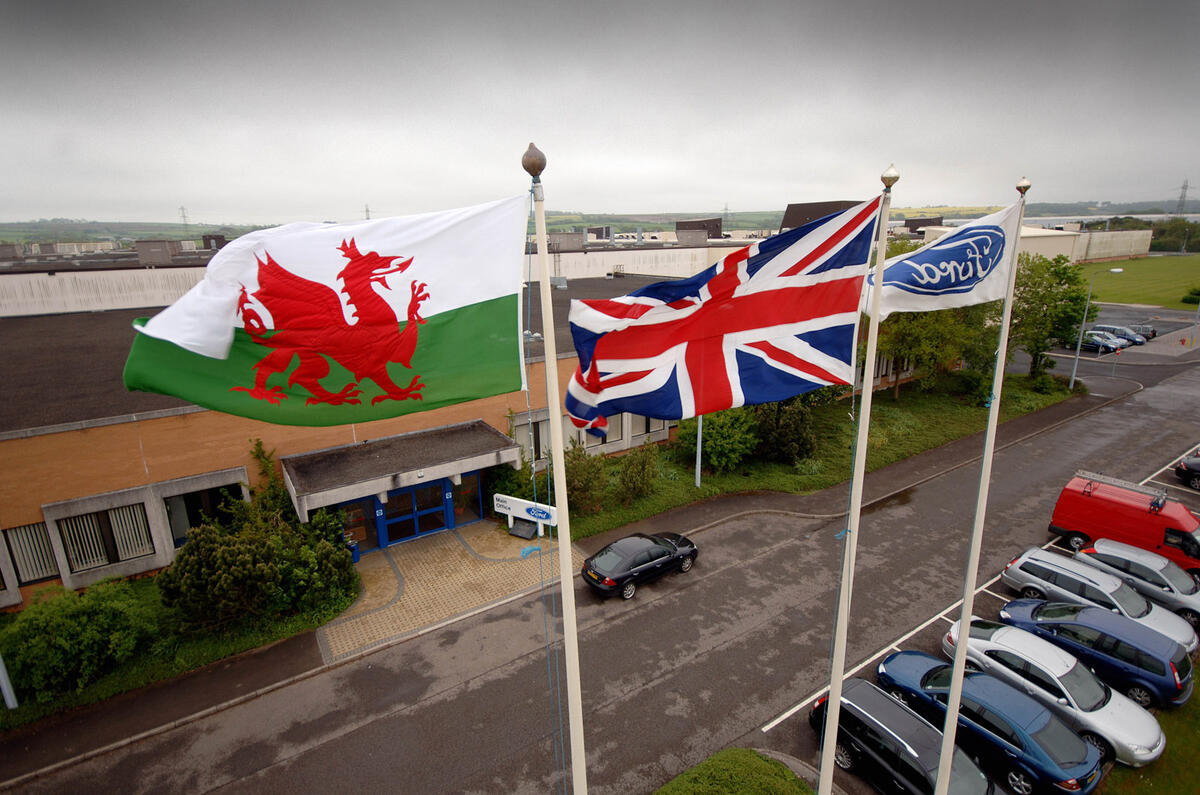Ford could make further UK workforce cuts beyond Bridgend in the event of a no-deal Brexit, according to the firm's European president, Stuart Rowley.
The statement comes after Ford confirmed plans to close its engine plant in South Wales as part of a wide-reaching restructure of its European business. Around 1700 jobs could be lost as a result. According to a letter sent to employees, the job losses will be conducted in phases, starting from September next year.
When asked if further job losses could come in the event of a deal with the European Union not being struck, Rowley said: "Should a no-deal Brexit happen, we will need to evaluate the environment with regards to tariffs and customs issues - we’re hoping that doesn’t happen. If the business environment changes significantly, we will have to review our business plan."
Despite this, Rowley claims that the decision on Bridgend was "nothing to do with Brexit", stating: "If Brexit had never happened, would there be a different decision? The answer is no."
The firm has started a consultation to close the Welsh facility, talking to unions and agreeing an “enhanced employee separation programme”.
Why Ford is closing Bridgend plant
Ford lists a number of factors for the closure of Bridgend, centring on the “significant underutilisation” of the plant’s capacity of 750,000 engines per year. The approaching end of production of the AJ-V8 engine for Jaguar Land Rover - moved to the firm’s Wolverhampton plant - and Ford’s Sigma engine is cited, alongside a reduction in global demand for the 1.5-litre three-cylinder Ecoboost motor (used in the Fiesta ST and Ford Focus).
Production of the latter engine is proposed to end at Bridgend in February, with the supply of Jaguar engines stopping in September 2020, when Ford intends to close the plant altogether. It has set aside around £500 million for costs associated with the closure, the vast majority of which is set to be paid to employees as part of “separation and termination payments”.

“Creating a strong and sustainable Ford business in Europe requires us to make some difficult decisions, including the need to scale our global engine manufacturing footprint to best serve out future vehicle portfolio,” said Rowley.
“We are committed to the UK. However, changing customer demand and cost disadvantages, plus an absence of additional engine models for Bridgend going forward, make the plant economically unsustainable in the years ahead.”




Join the debate
Add your comment
Ford long term strategy
Ford adopted a strategy to exit UK manufacturing in 1990s. Dagenham is now the Beams Park housing development, countless sites in Enfield, Treforest, Belfast, Leamington, Basildon, Aveley have been shut, office blocks including the former Headquarters at Warley, Essex sold for conversion into flats. The success of the strategy relies on UK buyers being unconcerned that their vehicles are imported from, including from low cost Romania, India, and Turkey, and bought at high-profit UK market prices. The decision to deny Bridgend replacement, new model, engines was made in 2008 when Ford bought the ex-Daewoo, Craivo plant from the Romanian government in that year -since which time triple cylinder Eco-Boost 1.0L engines (300k p.a.) and Transit Connect, B Max, and now Eco-Sport have been exported from there to the UK. Those UK car buyers who are OK with this will keep buying Ford, those who aren't won't. On that balance hangs the success or failure of Ford's strategy.
Ford are mostly closing
Ford are mostly closing Bridgend because they stupidly sold JLR without including Bridgend in the deal. JLR then built a brand new plant in Wolverhampton. The workforce should have realised they were stuffed when the looked at the engines they made and realised they were going to a car maker that Ford no longer owned.
Having said all of that what company in their right mind would open a factory in the UK with the uncertainty of Brexit going on? If Brexit is so good for manufacturing then sure Dyson would make his car here instead of Singapore! I mean how many wealthy leavers have said they will open a factory here?
They get dafter by the minute.
Well you certainly win idiot-of-the-day award with a quote like that, unless of course Singapore is now part of the EU.
Let's re-word it. If the EU is so good for manufacturing, then sure Dyson would make his car within the EU instead of Singapore. In other words, what has Brexit got to do with Dyson's decision?
scotty5 wrote:
Nice straw man. He made the decision becasue of Brexit uncertainty and better incentives to build in the far-east. The choice wasn't just to build here or the EU, but globally. And you might have heard, even in your echo chamber, that wages are quite high in most of the EU.
Transit production
Sorry, just a minor correction needed. Ford's Transit plant in Southampton opened after Otosan in Turkey.
Southampton closed a few years ago
Sothampton closed after the EU gave a grant to Ford Turkey for transit production.